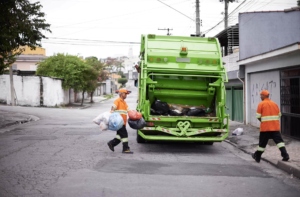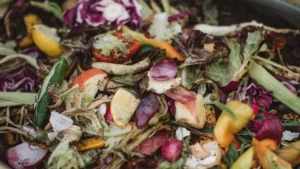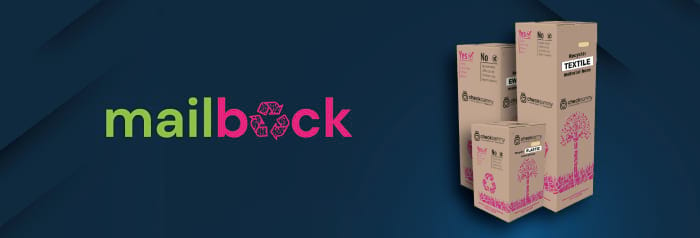Food Waste & Recalls: What You Should Know
Food waste is a problem. According to the Food and Agriculture Organization of the United Nations, about one-third of all food produced is never eaten.
As a business, you probably don’t realize how much of your product ends up in the trash. But when dealing with recalled food, even if it’s only a tiny percentage, that can add up quickly.
Even though there are ways to reduce your food waste from recalled products, how do you know where to start? And what kind of impact will it have on your company and your bottom line?
Recalled Food: How It Contributes to Food Waste
Food recalls occur when products are found to be contaminated or unsafe for human consumption. They can be issued by the FDA or a company if there are issues with their products. When companies issue recalls, it means they have already been distributed and consumed. This means that even if a product is eventually deemed safe for consumption, it will still contribute to the amount of wasted food in America every year because consumers may have already consumed them before being told not to eat them anymore.
While there’s no way to know how much of this contaminated food ends up in landfills instead of being donated to charity or used in animal feed, there are plenty of other reasons why we should be concerned about food waste related to recalls:
1. Recalled foods are often thrown away before they even reach consumers. This means that all the money spent growing and processing the ingredients gets wasted along with transportation, packaging, and marketing costs.
2. Recalled foods often end up in landfills, producing harmful greenhouse gasses like methane.
Restaurants and grocery stores should immediately remove any remaining recalled products from sale or service. Donate them to charity organizations such as homeless shelters or soup kitchens if it is still edible. If the product has already been consumed, throw it away in a sealed plastic bag and place it in an outdoor trash container so that animals cannot access it.
How Businesses Can Reduce Their Food Waste
If you’re serving food that has been recalled, check with your local health department or the manufacturer before disposing of it—you may be able to donate or sell it instead.
Take advantage of unused ingredients and turn leftovers into new meals instead of throwing them out.
Benefits of Reducing Your Business’s Food Waste
Save Money: If you’re throwing out food that’s still edible, you could be losing up to hundreds on wasted products.
Social Impact: By donating or recycling unused food instead of tossing it in the trash, you’re helping those in need and reducing waste going into landfills. This helps to reduce greenhouse gasses produced by decomposing garbage.
Environmental Impact: Fewer people will be affected by climate change because fewer greenhouse gasses will be released into our atmosphere when we don’t throw away food that can still be eaten!
The Peanut Butter Project is just one example of how CheckSammy has helped businesses reduce their food waste output. After a massive peanut butter recall, one Fortune 500 business was left with masses of worthless inventory.
CheckSammy successfully removed and disposed of 208 pallets of Peanut Butter at a food waste processing facility—130,000 pounds were gathered for diversion in total. CheckSammy effectively solved the producer’s problem while ensuring that the food was disposed of sustainably.
We understand how challenging it can be to reduce your carbon footprint when you have so many other things on your plate—but when you partner with CheckSammy, we take care of all the logistics so you can focus on growing your business.
We have the knowledge and resources to ensure that your business can access the best organic services at competitive prices. We offer everything from composting bins to curbside pickups and compost turnarounds; contact us today for more information!
See Our Services
Create a custom solution to meet your waste and sustainability goals. Contact us today!
Continue reading
Dive deeper into the CheckSammy Blog by reading one of our posts below
Feeling the Pain of Higher Resident Turnover? Apartment Junk Removal Can Help
If you’re a property manager, you’ve probably had a significant increase in tenant turnover over the last couple of years. So it’s no wonder apartment junk removal may be top of mind for you right now. There are several reasons for this shift. For one, the housing market is on fire right now. In 2020 […]
Read More About Feeling the Pain of Higher Resident Turnover? Apartment Junk Removal Can HelpSetting Up a Community E-waste Recycling Program
E-waste is the fastest-growing municipal waste stream according to the EPA, yet e-waste recycling isn’t keeping pace. In fact, only 12.5% of all e-waste is recycled, reports the EPA. Starting a community e-waste recycling program is a terrific way to ensure hazardous e-waste, like lithium-ion batteries, doesn’t end up in your community’s landfill. Creating an […]
Read More About Setting Up a Community E-waste Recycling ProgramWaste Management’s Role in the Circular Economy
Establishing a waste management program for your business or community is one of the best ways you can contribute to the circular economy. Here’s everything you need to know about waste management’s role in the circular economy (and how to get involved). What Is the Circular Economy? Our current economic model is all about taking […]
Read More About Waste Management’s Role in the Circular Economy5 Reasons to Consider a Textile Recycling Program for Your Organization
Americans sent more than 17 million tons of textiles to landfills in 2018, a volume that is only increasing every year, reports the Environmental Protection Agency. When you think about the fact that it can take over 200 years for textiles to decompose, it’s easy to grasp how large textile waste’s contribution is to the […]
Read More About 5 Reasons to Consider a Textile Recycling Program for Your Organization8 Benefits of Environmentally Friendly Power Washing Services
If you’re into maintaining the curb appeal of your business or home, then you’ve probably heard of pressure washing. Pressure cleaning involves using high-pressure water spray to remove grime, mold, dust, paint, mud, and other junk from objects or surfaces. Many people worry that pressure washing isn’t good for the environment, but this couldn’t be […]
Read More About 8 Benefits of Environmentally Friendly Power Washing ServicesWhy Our Customers Love Our Full-Service Junk Removal
If you’re looking for full-service junk removal services, you’ve come to the right place. CheckSammy is a one-stop shop for all your junk removal and sustainability needs. From our affordability, simplicity, and unrivaled turnaround times to our innovative sustainability solutions and patented technology and data, it’s clear why some of North America’s biggest companies choose […]
Read More About Why Our Customers Love Our Full-Service Junk RemovalTips for a Stress-Free Move From An Eco-Friendly Junk Removal Company
What does an eco-friendly junk removal company know about moving? Quite a lot, actually. Moving can be an especially chaotic time. You have to pack everything up, get rid of unwanted items, clean your property, load everything up, and move your things to your new location. That doesn’t even include the unpacking and resettling period. […]
Read More About Tips for a Stress-Free Move From An Eco-Friendly Junk Removal CompanyCollege Junk Removal Tips for Student Move-In Day
As the new school year gears up, colleges across the country are looking for ways to clean up their campuses before the new year begins, and many of them want to do so sustainably. College junk removal isn’t easy, though, especially around move-in week—and when trying to do so sustainably. As students move in and […]
Read More About College Junk Removal Tips for Student Move-In Day8 Items Hospitality Businesses May Not Know They Can Recycle
One hotel guest produces 2.5 pounds of trash every single day. Just a single hotel room produces around one cubic yard of waste each month, which totals 200 gallons of waste per room every month. Most of this waste goes straight to the landfill, even though research shows that up to 60% of it is […]
Read More About 8 Items Hospitality Businesses May Not Know They Can Recycle












